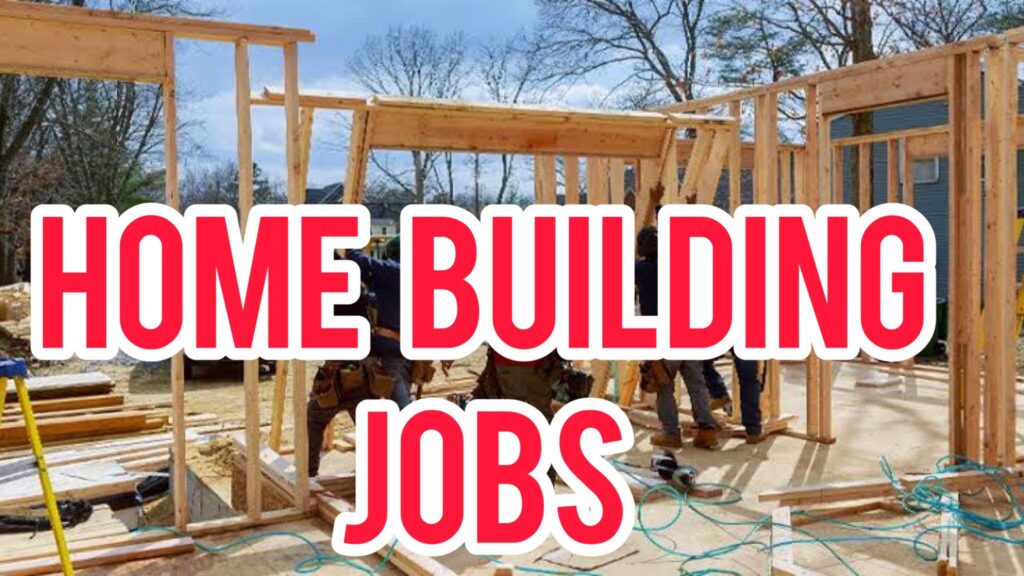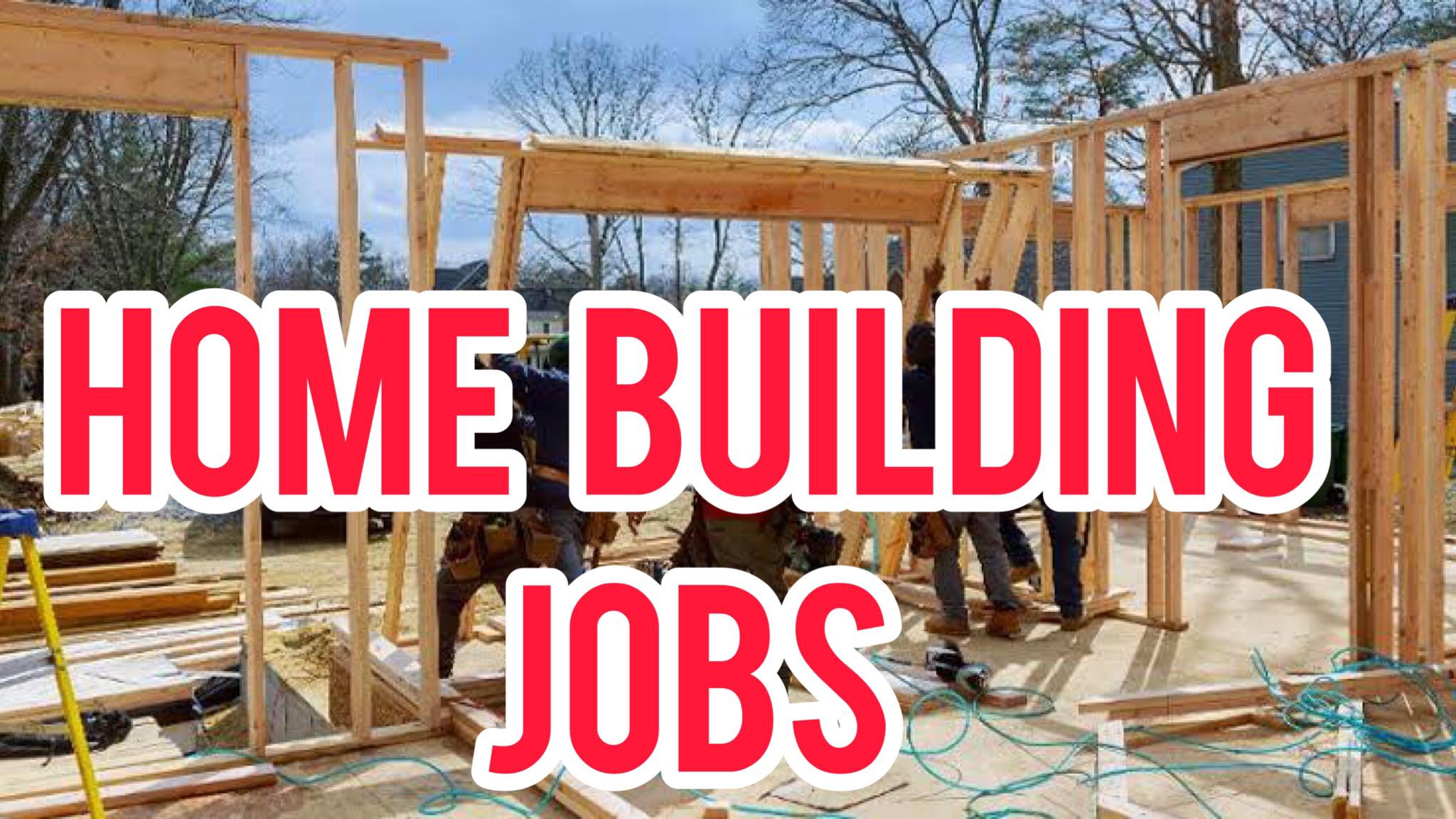
How Many Jobs Are Available In Homebuilding
In an ever-evolving job market, individuals are constantly on the lookout for stable and rewarding job opportunities. The homebuilding industry, often overshadowed by other industry, is filled with promising careers for those seeking job opportunities. But, how many jobs are available in homebuilding, and what does the future hold for those considering a career in this field? In this article, we’ll go into an in-depth exploration of the multifaceted world of homebuilding. We’ll look into the wide range of job opportunities, analyze current industry trends, and thoroughly examine the factors that contribute to the workforce in homebuilding.
Understanding the Homebuilding Industry
Before we discuss the wide range of job opportunities available in homebuilding industry, it is essential to establish a solid foundation for understanding what the homebuilding industry entails. Homebuilding is a broad term encompassing the construction of residential properties. This includes single-family homes, condominiums, apartment complexes, and everything in between.
It’s an intricate sector that involves a multitude of professionals, from visionary architects and meticulous engineers to the hardworking construction crews and savvy real estate agents. It’s a cornerstone of the construction industry, plays a pivotal role in shaping communities and providing a sense of belonging to countless families. It’s a sector that thrives on innovation, adaptability, and a constant demand for housing.
How Many Jobs Are Available In Homebuilding?
According to the US Bureau of Labor Statistics, here are over 2 million jobs available in the home building industry. The number of jobs available in the homebuilding industry can vary depending on various factors such as the state of the economy, the demand for housing, and regional differences. The homebuilding industry is a dynamic and ever-evolving sector offering a wide range of job opportunities. Whether you’re inclined towards hands-on construction, design innovation, sustainable practices, or logistics management, the homebuilding industry provides you a wide range of excellent career opportunities.
Also Read: How Many Jobs Are Available In Apparel
Job Opportunities in Homebuilding
Construction Workers
Construction workers, often referred to as the lifeblood of the homebuilding industry, form the backbone of any residential project. They are the ones who lay the groundwork, construct the structures, and ensure that every detail is executed to perfection. Within this category, there is a diverse range of roles, catering to individuals with various skill levels and expertise. From entry-level laborers who provide essential support to skilled tradespeople like carpenters, electricians, and plumbers, there’s a place for everyone in this sector.
Architects and Designers
Architects and designers are the creative masterminds behind the captivating homes that grace our neighborhoods. They play a vital role in crafting the visual and functional aspects of residential structures. These professionals are responsible for drafting meticulous blueprints, conceiving innovative design layouts, and ensuring the structural integrity of every building. In a rapidly evolving industry, architects and designers are indispensable.
Project Managers
At the helm of every successful homebuilding project, you’ll find project managers. These individuals are the orchestrators of the entire construction process. They are tasked with responsibilities that span from initial planning and meticulous budgeting to the final execution of the project. The role of project managers is pivotal, as they ensure that projects are not only completed on time but also within budget constraints. Their strategic thinking and leadership abilities make them critical players in the homebuilding industry.
Real Estate Agents
Real estate agents specializing in the homebuilding sector facilitate the crucial connection between buyers and newly constructed homes. They are the bridge that helps potential homeowners find their dream abodes. These professionals work closely with homebuilders, leveraging their expertise in marketing and sales to promote and sell properties. Their role is instrumental in driving the housing market.
Sales and Marketing
The sales and marketing sector within homebuilding is the engine that propels properties into the hands of eager buyers. Professionals in this field are responsible for creating and implementing effective advertising campaigns, conducting comprehensive market research, and managing sales teams. Their efforts are geared toward not just selling houses but also creating a brand presence for homebuilders.
Factors Influencing Job Availability in the Homebuilding Industry
The following include different factors that significantly influence the availability of jobs in the homebuilding industry:
Economic Conditions
The health of the overall economy plays a vital role in the demand for new homes. During economic downturns, the construction industry may experience a slowdown, impacting job availability. Conversely, during periods of economic prosperity, the industry often experiences growth and expansion. For instance, the construction industry experienced a surge in demand during the post-pandemic housing boom, leading to an increased need for skilled professionals.
Also Read: How Many Jobs Are Available In Broadcasting
Population Growth
The pace of population growth directly correlates with the need for housing. As cities and suburbs continue to expand, creating new neighborhoods and housing developments, there is an increased demand for skilled professionals in construction and related fields. Regions with robust population growth, such as metropolitan areas and emerging urban centers, tend to offer a wealth of job opportunities in homebuilding.
Government Policies
Government incentives, subsidies, and regulations can significantly influence the homebuilding industry and subsequently affect job prospects. Policies that promote affordable housing or environmental sustainability can shape the industry’s direction. For example, initiatives aimed at encouraging green building practices often lead to the creation of jobs related to sustainable construction.
Technological Advancements
Automation and technological innovations are revolutionizing how homes are built. While these advancements can increase efficiency and reduce costs, they may also impact the types of jobs available. The industry now requires professionals who are adept at working with advanced tools and technologies, such as 3D printing and Building Information Modeling (BIM).
Is Homebuilding a Good Career Path?
Yes, it is. For many individuals, homebuilding may be a can be a rewarding and lucrative career path, but whether it’s a good fit for you will depend on your interests, skills, and career goals. Your own interests, skills, and career goals will ultimately determine whether homebuilding is the right career path for you.If you enjoy construction work, have the necessary skills and training, and willing to adapt to changing market conditions, it can be a fulfilling and financially rewarding career. However, it’s essential to research and plan your career path carefully to ensure it aligns with your goals and values.
Trends in Homebuilding Jobs
The rising importance of sustainability and energy efficiency in the homebuilding industry is one of the most notable trends. A new era of environmentally conscious construction has come into being thanks to green building practices, eco-friendly building materials, and energy-efficient technologies. This shift has given rise to numerous job opportunities related to sustainable construction practices. These jobs include sustainability consultants, energy auditors, experts in green building certifications like LEED (Leadership in Energy and Environmental Design), and professionals specializing in renewable energy integration within homes.
Also Read: How Many Jobs Are Available In Water Supply
As a result of the demand for sustainable building materials and techniques, Green construction jobs such as installing solar panels, creating rainwater collecting systems, and putting in place energy-efficient HVAC (Heating, Ventilation, and Air Conditioning) solutions, have also emerged.
Conclusion
The homebuilding industry offers a wide range of job opportunities to suit people with different skill sets and interests. The number of available jobs in the homebuilding industry can fluctuate depending on the economy, population growth, government policies, and advancements in technology. The industry is still an excellent choice for people looking for stable employment and advancement in their careers.
Related Questions
Are there job opportunities in homebuilding for individuals without prior experience in construction?
Yes, the homebuilding industry offers entry-level positions that require minimal experience, making it accessible to those looking to start a career in construction. Many construction companies provide on-the-job training and apprenticeship programs.
How do I become a licensed architect in the homebuilding industry?
To become a licensed architect, you typically need a bachelor’s or master’s degree in architecture from an accredited university. After completing your degree, you must gain practical experience working under a licensed architect and pass the Architect Registration Examination (ARE) to obtain your architect’s license.
Are there remote job opportunities in homebuilding, such as online marketing or design work?
Yes, some roles in homebuilding, such as sales and marketing, can involve remote work, especially in the digital marketing and design aspects of the industry. Additionally, with advancements in technology and virtual collaboration tools, remote work options may expand in various roles, including project management and architectural design.
What skills are essential for a successful career in homebuilding project management?
A successful career in homebuilding project management requires a combination of skills, including effective communication, exceptional organization, strong problem-solving abilities, leadership qualities, and a deep understanding of construction processes and regulations. Project managers should also be adept at budgeting and time management.
How can I stay updated on the latest trends and developments in the homebuilding industry to enhance my job prospects?
Staying informed in the ever-evolving homebuilding industry involves several strategies. These include following industry publications and websites, attending trade shows and conferences, networking with professionals in the field, participating in relevant online forums and communities, and considering continuing education and certification programs. Additionally, subscribing to newsletters and podcasts focused on construction and homebuilding can help you stay up-to-date with the latest trends and innovations.

Sage is a financial/consumer journalist and senior editor, personal finance, of TrendsHQ. EXPERTISE: Personal Finance, Careers, Jobs, Scholarships, and Entertainment.
